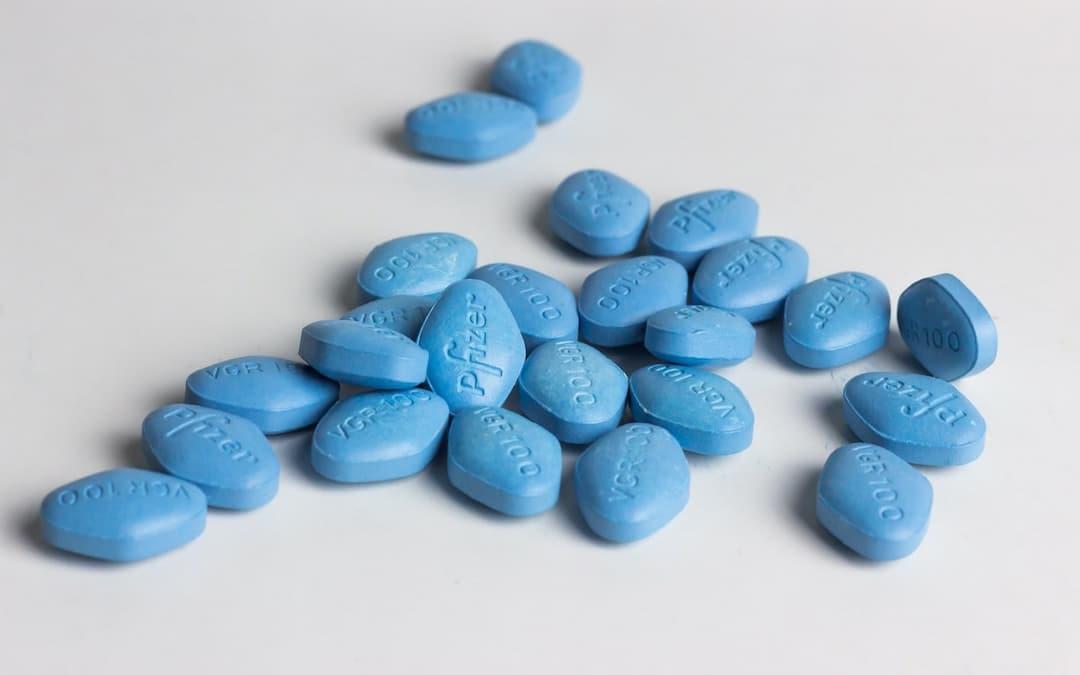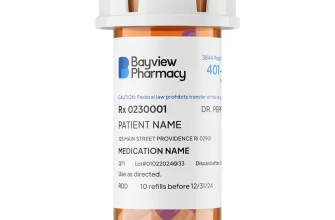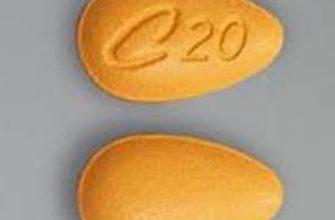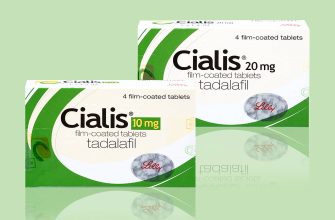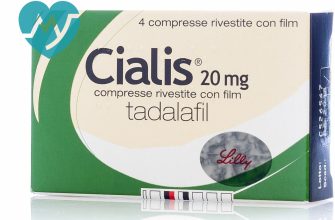Yes, you can split Cialis tablets, but only if they’re the scored tablets. Look for a score line–a groove running across the tablet. This score indicates the manufacturer designed the tablet for splitting.
Using a pill splitter ensures an even break. Improperly breaking the tablet might lead to uneven dosing. This is important because consistent dosage is key for Cialis’s effectiveness. Remember, always follow your doctor’s instructions regarding dosage.
While splitting scored tablets is generally safe, always consult your doctor or pharmacist before doing so. They can advise if splitting is suitable for your specific needs and health condition. They can also address any concerns you might have about the process or potential side effects.
Important Note: Never attempt to split tablets without a score line. Unscored tablets may not break evenly, leading to inaccurate dosing and potentially impacting treatment efficacy. Your health is paramount; prioritize safety and proper medication use.
- Can I Split Cialis Tablets?
- Understanding Cialis Dosage Forms
- Daily vs. As-Needed
- Choosing the Right Dosage
- The Safety of Splitting Cialis Tablets
- Cialis Tablet Formulation & Splitting
- Potential Risks of Incorrect Splitting
- Potential Risks of Splitting Cialis: Irregular Dosage
- Dosage Accuracy is Paramount
- Consider Alternatives
- Potential Risks of Splitting Cialis: Difficulty in Accurate Splitting
- Inconsistent Dosage: A Major Concern
- Tools and Techniques: Limitations and Risks
- Alternatives to Splitting
- Conclusion: Prioritize Safety
- Alternatives to Splitting Cialis: Consulting Your Doctor
- Exploring Different ED Medications
- Lifestyle Changes and Other Treatments
- Generic Cialis Options: Lower Cost Alternatives
- When to Seek Professional Medical Advice
- Specific Circumstances Requiring Immediate Medical Attention
- Situations Warranting a Doctor’s Consultation
- Remember:
Can I Split Cialis Tablets?
Generally, you should not split Cialis tablets without consulting your doctor. While some medications can be safely divided, Cialis’s specific formulation may not allow for consistent dosing after splitting.
Breaking a tablet can affect the drug’s absorption and potentially lead to an ineffective dose or, conversely, an unexpectedly high dose. This could impact treatment efficacy and potentially cause side effects.
If you’re struggling with the cost or dosage of Cialis, talk to your doctor. They can explore alternatives, such as a lower dosage or a different medication entirely, ensuring you receive appropriate treatment.
Your doctor can also provide information on patient assistance programs or other resources that may help manage the cost of your prescription.
Always follow your doctor’s instructions regarding medication. Never adjust your dosage without professional guidance.
Understanding Cialis Dosage Forms
Cialis comes in several forms to suit individual needs. You’ll find it as a daily tablet (2.5mg or 5mg) and as tablets for use as needed (5mg, 10mg, and 20mg).
Daily vs. As-Needed
The daily option provides continuous medication, leading to consistent readiness for sexual activity. The as-needed tablets are taken 30 minutes to 2 hours before anticipated sexual activity. Dosage should always be determined by your doctor.
Choosing the Right Dosage
Your doctor will select the appropriate dosage based on your health, medical history, and response to treatment. Starting with a lower dosage is common, with adjustments made as needed to find the most effective level. Never alter your dosage without consulting your physician.
Remember, only your doctor can determine the correct Cialis dosage and form for you. They will consider your individual circumstances and ensure the safest and most effective treatment.
The Safety of Splitting Cialis Tablets
Generally, splitting Cialis tablets is safe for 5mg and 10mg tablets, but it’s crucial to use a pill splitter designed for this purpose. Improper splitting can lead to inaccurate dosing. Always follow your doctor’s instructions precisely; they will determine the appropriate dosage based on your health and medical history.
Cialis Tablet Formulation & Splitting
The 20mg Cialis tablet is not typically recommended for splitting due to its unique formulation. This higher dosage tablet may not split evenly, resulting in inconsistent drug delivery. Stick to the 5mg or 10mg tablets if splitting is necessary.
Potential Risks of Incorrect Splitting
Uneven splitting can result in taking either too much or too little medication. Taking too much Cialis may increase the risk of side effects, such as headache, flushing, and muscle aches. Conversely, taking too little may render the medication ineffective.
Always consult your doctor before splitting any medication. They can provide personalized advice and ensure you’re using the correct dosage and method. Your health and safety should always be prioritized.
Potential Risks of Splitting Cialis: Irregular Dosage
Don’t split Cialis tablets unless your doctor specifically instructs you to. Inconsistent dosing is a significant concern. Splitting a tablet manually may result in uneven halves, leading to an inaccurate dose. You might accidentally take too little medication, reducing its effectiveness. Conversely, you could unintentionally ingest too much, significantly increasing the risk of side effects. These side effects can range from mild headaches and flushing to more serious issues like low blood pressure, vision problems, and hearing loss.
Dosage Accuracy is Paramount
Cialis is designed to be taken in precise doses to achieve the desired therapeutic effect. Variations as small as 10% can impact efficacy. Manual splitting introduces significant potential for dosage inaccuracy. Pharmaceutical manufacturers use sophisticated machinery to ensure consistent drug distribution, a precision impossible to replicate at home. For safe and effective treatment, always follow your doctor’s instructions regarding dosage and administration.
Consider Alternatives
If you’re struggling with the cost or dosage of Cialis, talk to your doctor. They can discuss alternatives, such as different formulations or medications, to find the best solution for your needs. Never attempt to adjust your prescription without professional guidance.
Potential Risks of Splitting Cialis: Difficulty in Accurate Splitting
Don’t attempt to split Cialis tablets without consulting your doctor. Precisely halving a tablet is challenging, leading to inconsistent dosages.
Inconsistent Dosage: A Major Concern
Cialis tablets are scored to aid splitting, but variations in manufacturing and handling can create uneven surfaces. A slightly uneven split means you might receive either too much or too little active ingredient (tadalafil).
- Taking too much tadalafil can increase the risk of side effects, including headaches, back pain, muscle aches, flushing, and nasal congestion. Severe side effects are rare but possible.
- An insufficient dose may not provide the desired therapeutic effect.
Tools and Techniques: Limitations and Risks
Using pill cutters or other tools doesn’t guarantee accuracy. Even with the best tools, slight variations are inevitable. Improper handling can also damage the tablet, affecting its integrity and bioavailability.
Alternatives to Splitting
- Discuss lower-dose options with your doctor. They can prescribe a formulation that matches your needs without the need for splitting.
- Explore different medications. Your doctor may suggest alternative treatments if Cialis isn’t suitable at the available dosages.
Conclusion: Prioritize Safety
The potential for inaccurate dosage when splitting Cialis outweighs any perceived cost savings. Always prioritize your safety and health by following your doctor’s instructions and avoiding self-medication practices. Consult your physician before making changes to your prescription medication regimen.
Alternatives to Splitting Cialis: Consulting Your Doctor
Talk to your doctor. They can explore alternative treatment options tailored to your specific needs. This might involve adjusting your current Cialis dosage, switching to a different medication, or addressing underlying health conditions affecting erectile dysfunction. Your doctor can accurately assess your health status and determine the safest and most effective approach.
Exploring Different ED Medications
Tadalafil (Cialis) isn’t the only medication available for erectile dysfunction. Your doctor might suggest alternatives like sildenafil (Viagra), vardenafil (Levitra), or avanafil (Stendra). Each medication has unique characteristics, including onset and duration of action, and potential side effects. A doctor can help you choose the best option based on your individual circumstances and preferences.
Lifestyle Changes and Other Treatments
Besides medication, lifestyle modifications can significantly impact erectile function. Your doctor can advise you on incorporating regular exercise, a balanced diet, stress management techniques, and smoking cessation into your routine. They might also discuss other therapeutic options such as penile injections, vacuum erection devices, or even surgery, depending on your situation.
Generic Cialis Options: Lower Cost Alternatives
Consider Tadalafil, the active ingredient in Cialis. Many pharmacies offer generic Tadalafil at significantly lower prices than brand-name Cialis. This provides a cost-effective way to access the same medication.
Online pharmacies can also offer competitive pricing. However, always verify their legitimacy and safety before making a purchase to ensure you’re receiving authentic medication.
Compare prices across different pharmacies, both online and brick-and-mortar. Utilize pharmacy comparison websites to simplify this process.
Prescription savings programs and coupons may further reduce your out-of-pocket costs. Check with your insurance provider or explore available programs online.
Be aware of potential differences in inactive ingredients between brand-name and generic medications. These rarely cause problems, but it’s good to be informed.
| Option | Pros | Cons |
|---|---|---|
| Generic Tadalafil | Lower cost, same active ingredient | May have different inactive ingredients |
| Online Pharmacies | Potentially lower prices | Requires careful verification of legitimacy |
| Pharmacy Comparison Websites | Easy price comparison | Requires internet access |
| Prescription Savings Programs | Reduced out-of-pocket costs | Program availability may vary |
Always discuss medication options with your doctor before making any changes to your treatment plan. They can help you choose the best and safest option for your individual needs.
When to Seek Professional Medical Advice
Always consult your doctor before splitting Cialis or starting any new medication. This is especially crucial if you have pre-existing health conditions.
Specific Circumstances Requiring Immediate Medical Attention
- Experience chest pain, shortness of breath, or dizziness after taking Cialis. These could indicate serious cardiovascular problems requiring immediate attention.
- Develop sudden vision changes, such as blurred vision or loss of vision. This is a potential sign of a serious side effect.
- Have a prolonged erection (priapism) lasting more than four hours. This is a medical emergency and requires immediate treatment.
- Experience a severe allergic reaction, such as hives, swelling of the face or throat, or difficulty breathing. Seek immediate medical help.
Situations Warranting a Doctor’s Consultation
- You are taking other medications, including nitrates or other heart medications. Interactions can be dangerous.
- You have a history of heart disease, stroke, high blood pressure, or low blood pressure. Cialis may not be suitable for everyone.
- You have kidney or liver problems. Your dosage might need adjustment based on your organ function.
- You are over 65 or have other age-related health concerns. Dosage adjustments may be necessary.
- You are unsure about the correct dosage or how to safely split the tablet. Your doctor can provide personalized guidance.
Remember:
Your doctor can help you determine the safest and most effective way to manage your erectile dysfunction. Don’t hesitate to discuss your concerns; open communication is key to your health.

